|
Key Players in
Status Arena
Some of the key players in the
nation's capitol on the Puerto Rico status.
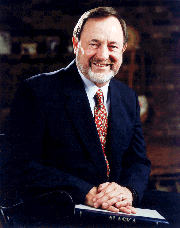 Rep. Don Young,
R-Alaska. The author of the status legislation now before the
House Resources Committee, which he chairs. Young, who advocates
statehood for the island, has taken on the
"decolonization" cause with a fervor. He has sparked
bipartisan interest in Congress in his efforts for a resolution
to the island's status dilemma. Rep. Don Young,
R-Alaska. The author of the status legislation now before the
House Resources Committee, which he chairs. Young, who advocates
statehood for the island, has taken on the
"decolonization" cause with a fervor. He has sparked
bipartisan interest in Congress in his efforts for a resolution
to the island's status dilemma.
 Rep. George Miller,
D-California. The ranking Democrat on the Resources Committee.
Miller, who strongly opposed Young's status legislation last year
on grounds that it was prejudicial to commonwealth, and because
the 10 year transition could not guarantee a status change, has
signed on to this year's bill after Young indicated he would
greatly shorten the transition period. Miller's switch frees
other House Democrats to back the bill. Rep. George Miller,
D-California. The ranking Democrat on the Resources Committee.
Miller, who strongly opposed Young's status legislation last year
on grounds that it was prejudicial to commonwealth, and because
the 10 year transition could not guarantee a status change, has
signed on to this year's bill after Young indicated he would
greatly shorten the transition period. Miller's switch frees
other House Democrats to back the bill.
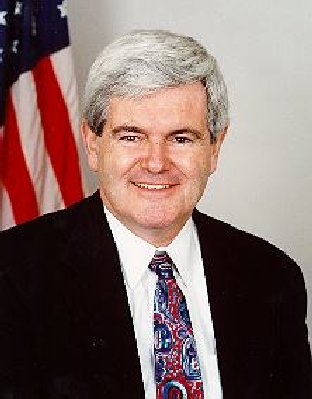 Rep.
Newt Gingrich, R-Georgia. As
speaker of the House, Gingrich will give the final go-ahead on
bringing the Young bill to the floor for a full House vote. The
fact that he is one of the legislation's 70 co-sponsors greatly
increases chances that he will do just hat once the measure
clears committees. Rep.
Newt Gingrich, R-Georgia. As
speaker of the House, Gingrich will give the final go-ahead on
bringing the Young bill to the floor for a full House vote. The
fact that he is one of the legislation's 70 co-sponsors greatly
increases chances that he will do just hat once the measure
clears committees.
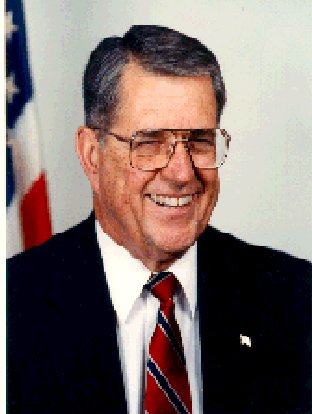 Rep. Gerald Solomon,
R- New York. The chairman of the House Rules Committee who is
expected to propose an amendment that would require the state of
Puerto Rico to adopt English as the language of instruction in
its public schools. Solomon's panel must clear Young's bill for a
floor vote. He is expected to introduce his potentially explosive
language provision before the full House. Rep. Gerald Solomon,
R- New York. The chairman of the House Rules Committee who is
expected to propose an amendment that would require the state of
Puerto Rico to adopt English as the language of instruction in
its public schools. Solomon's panel must clear Young's bill for a
floor vote. He is expected to introduce his potentially explosive
language provision before the full House.
Manse Mansur, chief advisor on insular
affairs to resources committee Chairman Young, Mansur, a former
aide to pro-statehood ex- Rep. Rep Robert Lagomarsino and also a
supporter of statehood for Puerto Rico, was the main craftsman of
Young's status legislation and helped spur the Alaska
Republican's interest in the island's political situation
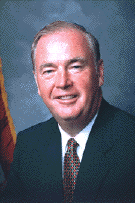 Sen.
Frank Murkowski, R- Alaska. The
chairman of the Energy and Natural resources Committee, where
upper chamber status legislation will be shaped. Murkowski, whose
recent visit to the island raised hopes among commonwealth
supporters that the option would get fairer shake in the senate,
has yet to commit himself on specific status legislation. He
appears to be more of a pragmatic than Young, and has accented
fiscal rather than "colonial" concerns over the U.S.
Puerto Rico relationship. Sen.
Frank Murkowski, R- Alaska. The
chairman of the Energy and Natural resources Committee, where
upper chamber status legislation will be shaped. Murkowski, whose
recent visit to the island raised hopes among commonwealth
supporters that the option would get fairer shake in the senate,
has yet to commit himself on specific status legislation. He
appears to be more of a pragmatic than Young, and has accented
fiscal rather than "colonial" concerns over the U.S.
Puerto Rico relationship.
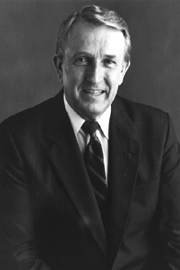 Sen.
Dale Bumpers, D-Arkansas. The
ranking Democrat on the Energy panel and a participant the last
time the committee considered status legislation in 1991. Bumpers
raised the idea then that a super majority plebiscite victory of
60 percent or more be required for statehood bid. He has yet to
voice his sentiments on the island status issue this time around. Sen.
Dale Bumpers, D-Arkansas. The
ranking Democrat on the Energy panel and a participant the last
time the committee considered status legislation in 1991. Bumpers
raised the idea then that a super majority plebiscite victory of
60 percent or more be required for statehood bid. He has yet to
voice his sentiments on the island status issue this time around.
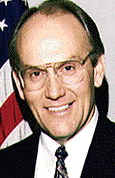 Sens. Larry Craig, R-Idaho, and Sens. Larry Craig, R-Idaho, and 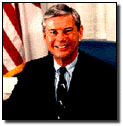 Bob
Graham, D- Florida. Co-authors of
legislation that mostly mirrors the Young bill, Both are members
of the Energy Committee which will take up their bill, the only
status legislation in the Senate so far Murkowski has not yet
said whether he favors this measure. Bob
Graham, D- Florida. Co-authors of
legislation that mostly mirrors the Young bill, Both are members
of the Energy Committee which will take up their bill, the only
status legislation in the Senate so far Murkowski has not yet
said whether he favors this measure.
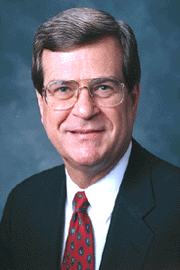 Sen. Trent Lott, R- Mississippi. The president of the Senate. After input from
other upper chamber Republican leaders, Lott will be the final
arbiter of whether the 100-member Senate gets to debate and vote
on legislation authorizing a plebiscite on the island next year.
And what guarantees will be included that the status choice will
be implemented. Sen. Trent Lott, R- Mississippi. The president of the Senate. After input from
other upper chamber Republican leaders, Lott will be the final
arbiter of whether the 100-member Senate gets to debate and vote
on legislation authorizing a plebiscite on the island next year.
And what guarantees will be included that the status choice will
be implemented.
Jim Beirne, Majority senior counsel of the
Energy panel. Beirne, who dealt in depth with the status
initiative in 1989-91, is the Senate's institutionalized memory
of Puerto Rico. He has voiced the belied that any future
plebiscite should offer the shortest possible definitions for
each status How much influence he will have with Murkowski
remains to be seen.
Jeffrey Farrow. The co-chair of the White
House Working Group on Puerto Rico. The exodus of White House
Chief of Staff Leon Panetta and Deputy Chief of Staff Harold
Ickes leaves Farrow as the one White House official with any
extensive knowledge about the intricacies of Puerto Rico status.
Farrow speaks for the president tom the status issue.
 President Clinton.
Where the buck eventually will stop. The president will make the
final decision on whether any status legislation passed by
Congress becomes law. He has said, though spokesman Farrow that
he would like the status process in full swing next year. Clinton
looks forward to "our entering the new millennium (less than
three years from now) having concluded the debate and
implementing the will of the Puerto Rican people". President Clinton.
Where the buck eventually will stop. The president will make the
final decision on whether any status legislation passed by
Congress becomes law. He has said, though spokesman Farrow that
he would like the status process in full swing next year. Clinton
looks forward to "our entering the new millennium (less than
three years from now) having concluded the debate and
implementing the will of the Puerto Rican people".
| 
